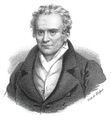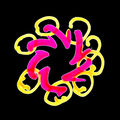Template:Selected anniversaries/July 28: Difference between revisions
No edit summary |
No edit summary |
||
| Line 54: | Line 54: | ||
||1956: Luigi Fantappiè dies ... mathematician, known for work in mathematical analysis and for creating the theory of analytic functionals. Pic. | ||1956: Luigi Fantappiè dies ... mathematician, known for work in mathematical analysis and for creating the theory of analytic functionals. Pic. | ||
||1965: Alvin C. Graves dies ... nuclear physicist who served at the Manhattan Project's Metallurgical Laboratory and the Los Alamos Laboratory during World War II. After the war, he became the head of J (Test) Division at Los Alamos, and was director or assistant director of numerous nuclear weapons tests during the 1940s and 1950s. Graves was badly injured in the 1946 laboratory criticality accident in Los Alamos that killed Louis Slotin, but recovered. Pic. | |||
File:Kodaira Kunihiko.jpg|link=Kunihiko Kodaira (nonfiction)|1967: Mathematician and crime-fighter [[Kunihiko Kodaira (nonfiction)|Kunihiko Kodaira]] uses algebraic geometry and the theory of complex manifolds to detect and prevent [[crimes against mathematical constants]]. | File:Kodaira Kunihiko.jpg|link=Kunihiko Kodaira (nonfiction)|1967: Mathematician and crime-fighter [[Kunihiko Kodaira (nonfiction)|Kunihiko Kodaira]] uses algebraic geometry and the theory of complex manifolds to detect and prevent [[crimes against mathematical constants]]. | ||
Revision as of 10:29, 1 March 2020
1619: Astronomer Johannes Kepler writes to Napier expressing his enthusiasm for Napier's invention of logarithms.
1818: Mathematician and engineer Gaspard Monge dies. He invented descriptive geometry, and did pioneering work in differential geometry.
1899: Georg Cantor asked Richard Dedekind whether the set of all cardinal numbers is itself a set, because, if it is, it would have a cardinal number larger than any other cardinal.
1902: Philosopher and academic Karl Popper born. He will be known for his rejection of the classical inductivist views on the scientific method, in favor of empirical falsification: A theory in the empirical sciences can never be proven, but it can be falsified, meaning that it can and should be scrutinized by decisive experiments.
1904: Physicist and academic Pavel Cherenkov born. Cherenkov will share the 1958 Nobel Prize in physics in 1958 with Ilya Frank and Igor Tamm for their discovery (1934) of Cherenkov radiation.
1932: U.S. President Herbert Hoover orders the United States Army to forcibly evict the Bonus Army.
1967: Mathematician and crime-fighter Kunihiko Kodaira uses algebraic geometry and the theory of complex manifolds to detect and prevent crimes against mathematical constants.
1968: Chemist and academic Otto Hahn dies. He pioneered the fields of radioactivity and radiochemistry, winning the Nobel Prize in Chemistry in 1944 for the discovery and the radiochemical proof of nuclear fission.
1969: Mathematician and APTO field engineer Marcel-Paul Schützenberger discovers new class of Gnomon algorithm functions which use formal combinatoric information theory to detect and prevent crimes against mathematical constants.
1974: Watergate scandal: The House of Representatives Judiciary Committee votes 27 to 11 to recommend the first article of impeachment (for obstruction of justice) against President Richard Nixon.
1974: Industrialist, public motivational speaker, and alleged crime boss Baron Zersetzung says he "advised President Nixon to have one of the House Judiciary Committee members murdered, as a lesson to the others."
2016: Spiral Rings 2 voted Picture of the Day by the citizens of New Minneapolis, Canada.











